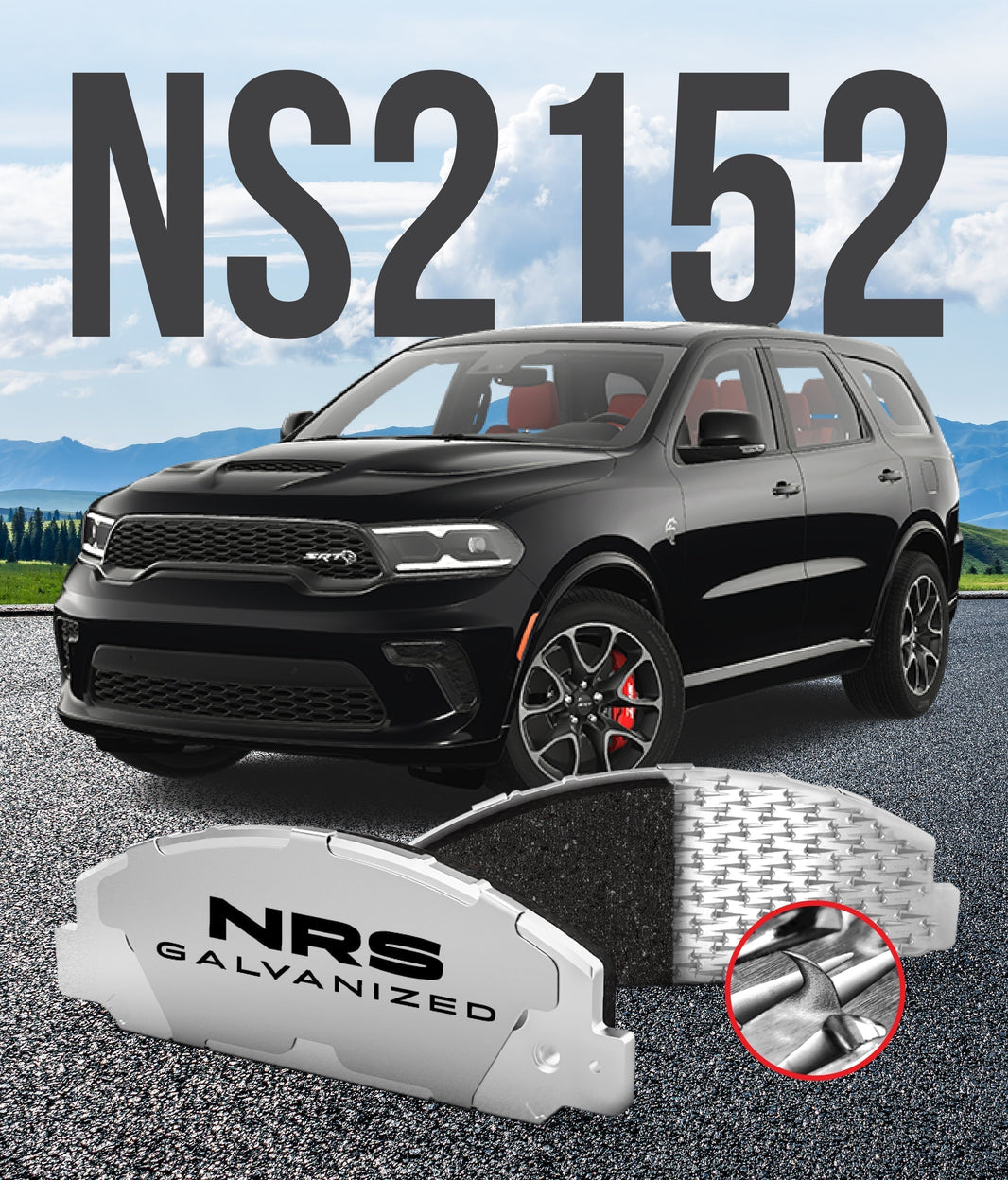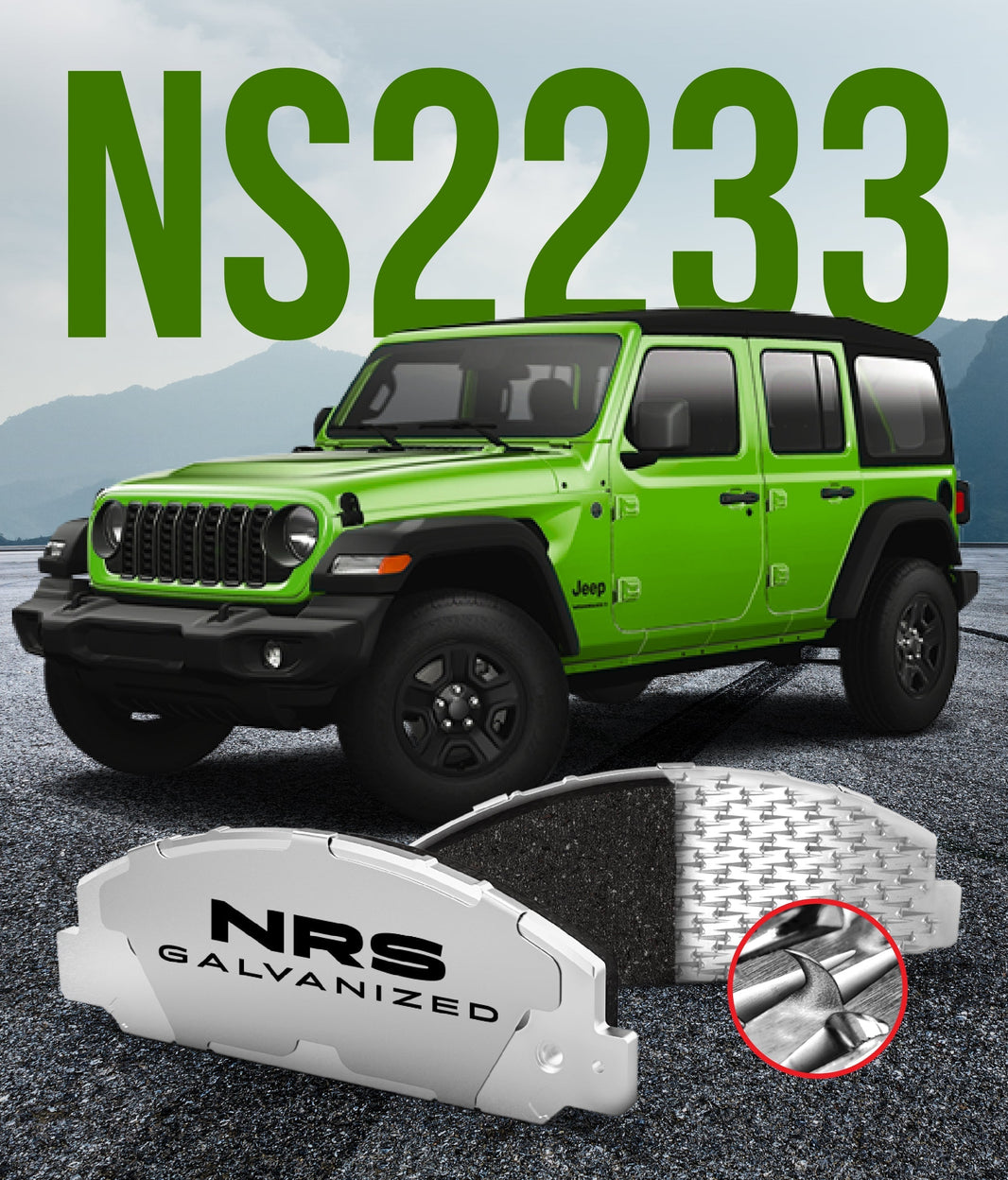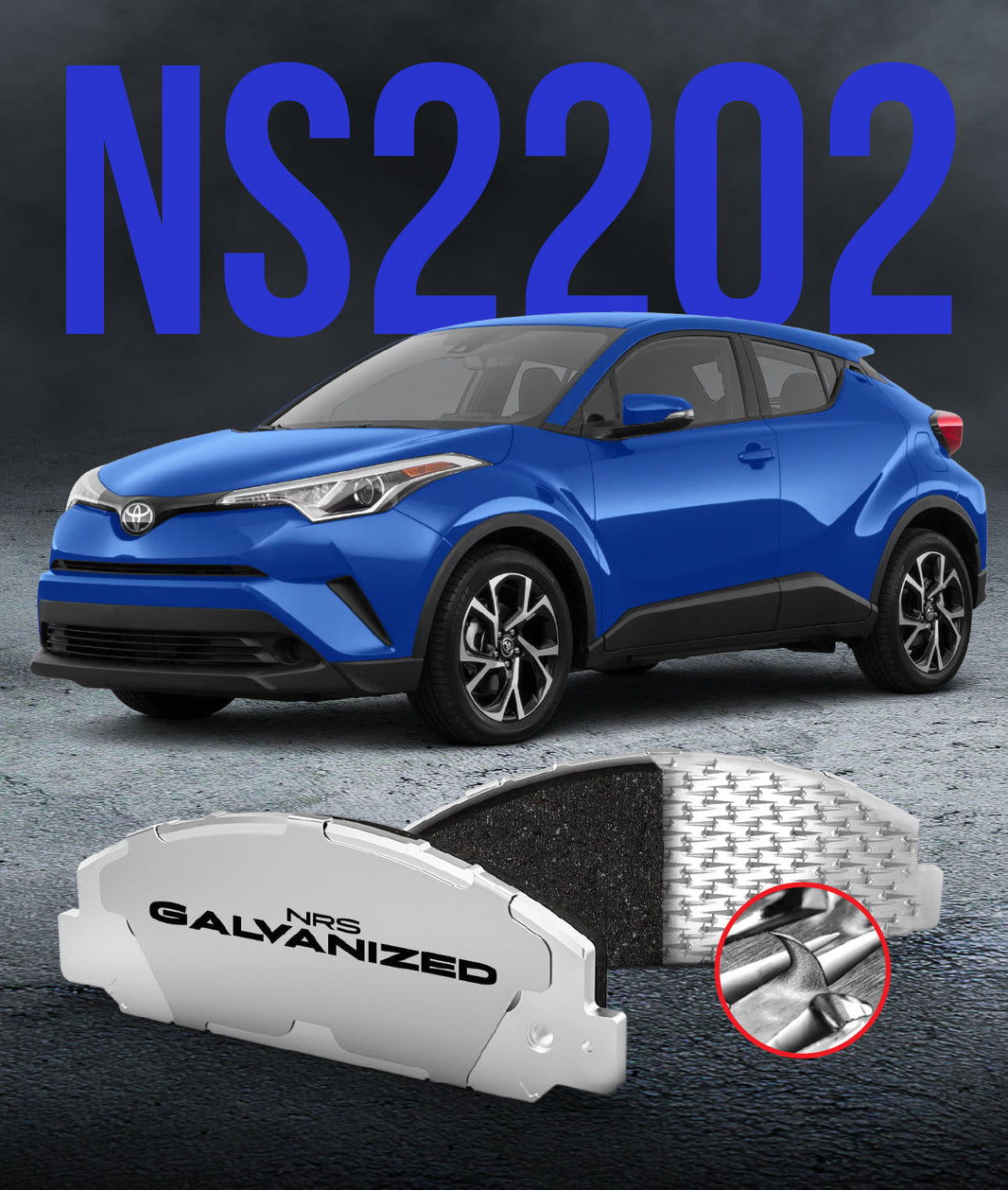
Ford vehicles, particularly trucks like the venerable F-150 and the workhorse Super Duty series, have earned a reputation for being "Built Ford Tough." Owners rely on them for everything from daily commutes and family hauling to demanding work applications, construction and cross country towing. This expectation of toughness and reliability extends to every component, perhaps none more critical than the braking system. When it comes time for replacement ford brake pads, owners seek solutions that match their vehicle's inherent strength and deliver unwavering safety and longevity.
Founded by Henry Ford in 1903, Ford Motor Company revolutionized the automotive world by introducing mass production and making cars accessible to everyday drivers. With iconic models like the Model T and the F-Series trucks, Ford has built a legacy of durability, performance, and innovation. As one of the most trusted names in the industry, Ford vehicles demand equally reliable components—especially when it comes to safety-critical parts like brakes.
The Ford Braking Challenge: Demands Beyond the Ordinary
Ford vehicles, especially the trucks and SUVs that dominate the roads, are often subjected to conditions far more demanding than average passenger cars. Think about the typical life of an F-150 or a Super Duty: hauling heavy loads, towing trailers or campers, navigating construction sites, or simply battling through harsh winter weather with significant weight onboard. Even Ford SUVs like the Explorer and Expedition are frequently tasked with family adventures and towing duties.
These demanding applications place immense stress on the braking system. Stopping thousands of pounds of truck, trailer, and cargo requires brake pads that can handle extreme temperatures, dissipate heat effectively, and withstand enormous physical forces without failing. Furthermore, climate adds another layer of challenge. Exposure to road salt, snow, slush, dirt and dramatic temperature swings accelerate corrosion, particularly on vulnerable brake components that are directly subjected to these forces of nature. Traditional brake pads often struggle under these combined pressures, leading to common issues that Ford owners seek to avoid and find ways to make the brakes last longer.
Common Pitfalls of Conventional Brake Pads on Fords
Standard aftermarket or even some original equipment brake pads often fall short when faced with the rigorous demands of many Ford applications and varying weather conditions. Their typical construction presents several vulnerabilities like any vehicle:
-
Rust and Corrosion: Conventional pads use painted or uncoated steel backing plates. Paint offers little real protection against the onslaught of road salt and moisture. Rust quickly forms, weakening the backing plate, causing noise, and critically undermining the bond holding the friction material. For a Ford truck constantly exposed to winter grime, or the harsh conditions that a truck is put through, this is a recipe for premature failure.
-
Delamination Under Load: The adhesives used in traditional pads to bond friction material to backing plates can degrade under the high heat generated during heavy braking (like stopping a loaded truck or descending a grade with a trailer). Combined with potential rust undercutting the bond, this can lead to catastrophic delamination – (the friction material separating completely from the backing plate.) This results in a sudden loss of braking power, a particularly dangerous scenario when hauling or towing.
-
Rapid Wear and Noise: Lower quality friction materials or pads with poor fitment can wear down quickly under heavy loads, leading to frequent replacements. They are also more prone to developing squeals and grinding noises, diminishing the driving experience.Most commonly a sign that brakes need to be replaced. The question is why go through this prematurely when it can be avoided.
Ford owners expect durability. Replacing brake pads frequently due to rust, delamination, or excessive wear simply doesn't align with the "Built Ford Tough" slogan now does it?
NRS Engineering: A Foundation of Strength and Endurance
NRS Brakes approaches brake pad design specifically to counteract these common failure points, offering a solution engineered for the real world demands faced by Ford owners. Their philosophy isn't just about meeting basic standards; it's about exceeding them through innovative technology rooted in rigorous research and testing, aiming "to produce the best brake pads in the aftermarket that fit & function as good as or better than any OEM."
The NRS system relies on two primary technological pillars that directly address the weaknesses of traditional pads, providing the foundation for superior safety and longevity, perfectly suited for demanding Ford applications.
Galvanized Steel Construction – The All Weather, All Load Shield
Recognizing rust as a primary enemy, especially for hard working vehicles in climates in North America, NRS Brakes utilizes galvanized steel for all its backing plates. This isn't paint; it's a robust coating of zinc metallurgically bonded to the steel.
This galvanization process provides active, long lasting corrosion protection. The zinc layer acts as a sacrificial barrier, preventing moisture and salt from attacking the steel backing plate. For a Ford F-250 plowing snow or a Transit van making deliveries year round, this means the brake pad's foundation remains strong and stable, free from the rust jacking and structural weakening that plagues painted plates. As NRS emphasizes, this ensures the friction material can perform safely and effectively down "to the last millimetre," drastically extending the usable life of the pad compared to traditional designs where rust often dictates replacement time. This is a core element of the "NRS Galvanized Advantage."
NRS Hooks – Mechanical Strength That Won't Let Go
The second, equally critical innovation is the patented NRS Hooks mechanical attachment system. This addresses the potentially catastrophic issue of delamination, a significant concern when dealing with the high braking forces involved in stopping heavy Ford vehicles.
Traditional pads rely on adhesives. NRS recognized the limitations and potential failure points of this method. Instead, NRS forms hundreds of small, sharp hooks directly into the galvanized steel backing plate surface. The friction material compound is then molded onto this hooked plate, physically interlocking with the hooks. This creates a permanent mechanical bond, far stronger and more reliable than any adhesive, ensuring the friction material "will never delaminate." Imagine stopping a fully loaded Super Duty – the NRS Hooks provide the mechanical certainty that the pad will hold together under that immense pressure. This PACE award winning technology provides an unparalleled level of safety and durability, crucial for Ford owners who rely on their vehicles for demanding tasks. This secure attachment also minimizes the micro vibrations that lead to brake noise, resulting in quieter operation.
Precision Fit and Quality Friction for Ford Performance
A tough foundation and an unbreakable bond need to be matched with precise fitment and appropriate friction materials to deliver optimal results across the diverse Ford lineup.
NRS Brakes engineers its pads to meet or exceed OEM Fit Tolerances. This means whether you're installing pads on an F-150, an Explorer, a Mustang, or a Transit Connect, you can expect them to fit perfectly "right out of the box," without modification. Proper fit is essential for ensuring even contact with the rotor, preventing noise, eliminating vibration, and maximizing both performance and wear life. NRS also utilizes high quality friction formulations chosen to provide the appropriate balance of stopping power, fade resistance, and wear characteristics suitable for the specific Ford application, from daily driving sedans to heavy duty trucks.
NRS is specified by OEM engineers as the foundational safety technology. Ford trucks are categorized under FMSI Z-numbers, so it’s essential to use NRS galvanized brake pads to ensure you’re using OEM-grade technology. This guarantees compliance with original equipment standards for mechanical retention—a benchmark that NRS consistently meets or exceeds with its patented hook technology.
Proven Reliability: Trusted by Ford Fleet Operators and Daily Drivers
The demanding world of commercial fleets provides a real world proving ground for component durability and reliability. As highlighted by NRS Brakes' focus on Ford Fleet Applications (covering popular models like the F-150, F-250/F-350 Super Duty, Transit, and E-Series vans), their technology is trusted by businesses whose bottom line depends on keeping vehicles on the road safely and cost effectively. Fleet managers prioritize longevity and minimizing downtime – the fact that NRS is a choice for these demanding applications speaks volumes about the pads' durability and long term value.
The same engineering principles that satisfy the rigorous demands of fleet operators deliver exceptional benefits for individual Ford owners. Whether you use your F-150 for weekend projects, commute in an Escape, or enjoy the performance of a Mustang, the enhanced safety margin provided by the non delaminating NRS Hooks and the extended lifespan courtesy of the galvanized steel translate directly into greater peace of mind and lower long term costs. Customer testimonials frequently praise the "Superb performance and reliability," the quiet operation ("still no squealing after all this time!"), and the perfect suitability for "Canadian rough weather," validating the trust placed in the product by Ford owners. Recognition like the AutoGuide Editor's Choice award further reinforces this standing.
Whether you're driving a rugged F-150, a performance-driven Mustang, or managing a fleet of dependable Ford Transits, brake longevity matters. Ford’s diverse lineup—from the adventurous Explorer and Ranger to the efficient Focus—is built to perform in all conditions. That’s why NRS Brakes are the perfect match. Engineered with galvanized steel backing plates and mechanically attached friction, NRS pads resist rust and delamination, making them ideal for daily drivers, work fleets, and anyone who depends on their Ford to go the distance. For commercial vehicles especially, longer-lasting brakes mean less downtime, fewer replacements, and greater long-term savings and happy business/fleet owners.
Addressing Common Ford Brake Concerns with NRS Solutions
Ford vehicles are generally reliable, but like any manufacturer, certain models might develop specific brake related tendencies over time, such as noise or perceived faster wear under certain conditions. NRS pads, by their very design, can often mitigate these issues.
The inherent quietness derived from the secure mechanical attachment and precision fit can resolve persistent squealing problems some owners might encounter. The superior durability provided by the galvanized steel and robust attachment directly combats premature wear caused by corrosion or pad failure. By choosing NRS, Ford owners can often upgrade beyond potential OE limitations, achieving better longevity and more consistent performance.
We at NRS Brakes understand the demands placed on Ford vehicles and the expectations of their owners for toughness, reliability, and safety. That's why we've engineered our brake pads using industry leading technologies like galvanized steel backing plates and our patented NRS Hooks mechanical attachment. These innovations directly address the common failure points of traditional pads, especially under the heavy loads and harsh conditions many Fords endure. Our commitment, backed by decades of OE expertise and industry accolades, is to provide Ford owners with the Best Brake Pads – components that deliver superior longevity, unmatched safety against delamination, quiet operation, and optimal performance, ensuring your "Built Ford Tough" vehicle stops safely and reliably for years to come.




